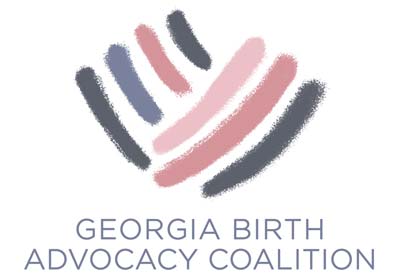Victim-Blaming: What We Get Wrong About Maternal Mortality, Birth Injuries, and Obstetric Violence
Photo by Ashton Mullins on Unsplash
A little over a year ago, I nearly died of a postpartum hemorrhage. My hemorrhage wasn’t that bad; it responded quickly to medication, and I was back home with my daughter the same night. What nearly killed me was not the severity of blood loss, but instead, delayed care at Emory Decatur Hospital. I, like thousands of other women every year, sat in the emergency room as doctors ignored my hemorrhage. I watched them treat a man with an injured finger while admonishing one another that I was “not an emergency.”
Postpartum hemorrhages kill—often very quickly. Research tells us that most hemorrhages are treatable, and that medical errors are the leading cause of maternal mortality. Slow or nonexistent treatment for postpartum hemorrhages is so common that researchers have coined the term denial and delay to describe the phenomenon. Doctors deny (or don’t believe) that there is a problem, thus delaying care and increasing the risk of death or serious disability.
I began sharing my story far and wide. I’ve written about why we don’t believe women about their own experiences, including when they’re dying of hemorrhages. I’ve detailed my painful experience in the hopes that I might save someone else.
Something really troubling happens every time I share my experiences, though: inevitably, at least one person explains why such a thing would never happen to them. They’d hire a doula, or be a good advocate, or choose the right hospital, or demand better care. Or, or, or….and, and, and…
It’s victim-blaming wrapped up as birth advocacy. The subtle message is clear: this only happens to people who don’t try hard enough, don’t know enough, don’t behave correctly.
I believe in the power of advocacy. But my experiences have shown me that good advocacy is not a substitute for overhauling a profoundly broken maternity system. A birthing person can only do so much. I couldn’t steal pitocin, stick in an IV, and turn on the pitocin drip that night. I couldn’t take a doctor hostage. Ultimately, I couldn’t save myself. I had to rely on the willingness of medical providers to do that—and they were bound and determined to ignore me.
I’m the sort of person this isn’t supposed to happen to. I’m a professional medical writer. Other people turn to me for advice about how to research their health and talk to their doctors. I run a maternal health nonprofit, and have devoted much of my life to training women and their families about their childbirth rights. The trainings and guides I’ve spent years providing are supposed to prevent the very sort of experience I had. They didn’t save me from doctors who wanted to ignore me.
We all want to believe that the worst won’t happen to us—that women who die giving birth don’t have to, that a doula or the right midwife or a little education can save your life. It’s true that we must adopt a defensive posture in an abusive medical system. It’s also true that advocacy can and does save lives—but it is not enough. The real problem here is a broken, for-profit medical system populated by racist, sexist providers who cannot be bothered to provide quality care. Individualistic solutions that focus on teaching people to advocate for themselves are a band-aid. In the long-term, we all rise or fall together. You can die giving birth. So can I. Accepting this reality is the only way we change it.
So believe women about their birthing experiences. Trust that they are more reliable narrators of their reality than you are. Ask what they need. Ask what would make things different. Then do it.
And while you’re at it, educate yourself about the terrible crisis of maternity care in Georgia. Here are some places to start:
5 Myths About Maternal Mortality in Georgia
10 Things You Need to Know About Georgia’s Maternal Mortality Crisis
9 Stunning Facts About Black Maternal Mortality
6 Scary Statistics About the Dangers of Unnecessary Birth Interventions
8 Shocking Statistics About Abuse and Mistreatment of People in Labor

